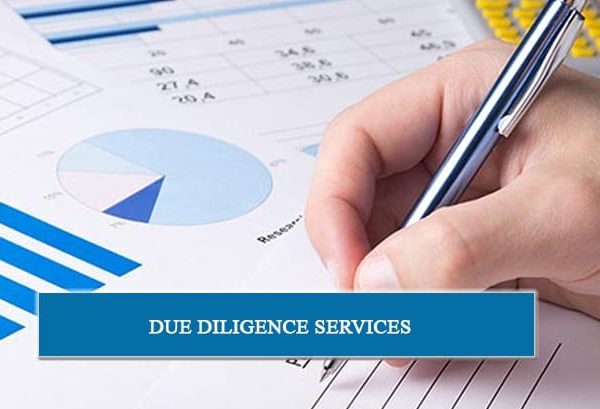
What is Due Diligence?
Due diligence is the method of analysis and research that is conducted in the lead up to an acquisition, a business partnership, an investment, or a bank loan. Due diligence establishes the value of the subject and also whether there are any ongoing issues or potential issues with the organization in question. The investor or the acquirer should ideally obtain all the indispensable information within a set time to ensure that he can make a good deal happen without any costly mistakes.
Due diligence happens to be the investigation or exercise of care that any reasonable business or person is expected to take before they enter into any contract or agreement with another party. Due diligence concerns itself with the exercise of care during mergers, acquisitions, or investments. Due diligence can be a binding legal obligation that a party has to go through but in most cases, this process applies to voluntary investigations.
While conducting due diligence there will be examination of income statements, records of receivable and payable accounts, balance sheets and tax returns will be inspected, profit and loss records will be scrutinized and there will be careful evaluation of cash deposits and payment records.
What are the main objectives of Due Diligence?
1. The Due Diligence process is a manual tool to check that the business you want to purchase is –
- Financially stable
- Legally sound,
- Check the stability of the Company,
- Knowing all the essential facts of the Company
2. It is required to be examined so that the buyer or acquirer can make an effective decision
3. It ensures a health check for the Company by exercising proper planning and execution.
4. Minimize the chances of acquiring unknown liabilities or risks
5. Identifying existing issues or problems of the business that may grow into higher proportions giving rise to unexpected liabilities in the future.
6. Determining the value of the business and accordingly negotiate the correct price
7. It is also undertaken as a sign of good corporate governance.
Our team can successfully conduct Counter Party Due Diligence (CDD), Vendor Due Diligence (VDD), Senior Management Due Diligence (SMDD), and Integrity Due Diligence (IDD). We can be of help to organizations that are looking to invest, indulge in strategic partnerships, or conduct mergers and acquisitions. Our due diligence reports are confidential, unbiased, and technically sound which makes us the ideal complement to the internal resources of our clients.
At Saif Auditing & Accountants we do the following as a part of our due diligence process:
- A thorough inspection of the company profile
- Examination of the employees & Market feedback
- Evaluation of the assets of the company
- Verification of the infrastructure
- Scrutiny of the compliance and affiliations
- An in-depth look at the accounting and the taxations
- Searches in public databases & Media
- A look at consumer complaints to judge their veracity
Why Saif Auditing & Accountants Consulting India Pvt Ltd for due diligence process:
- The efficient and timely delivery model
- Risk-based framework
- Standing global network with international coverage
- One-stop solution for all your threat and risk mitigation requirements
- Industry-leading standards and thought leader
- Respected by regulators and personal touch
- Tailored customized deliverable and technology-based solutions
- An experienced, multi-disciplinary team
FAQs
What is a due diligence checklist?
A due diligence checklist is a compact and organized way to analyze a company that is being acquired via a sale, merger, or any other method. We follow this checklist to know about the company’s assets, benefits, contracts, and potential issues.
Why is the due diligence checklist important?
A due diligence checklist helps to make sure that you don’t overlook anything when acquiring a business. We recommend using the checklist to know if there are obligations, problematic contracts, liabilities, and litigation risks you are assuming when taking control of the company.
What should I do after the compilation of the due diligence checklist?
Once you have the due diligence of the checklist prepared by Saif Auditing & Accountants, you should analyze it to see the potential for profit margins, operational efficiency upgrades, market competition, and market review, for monitoring trends in the market, and also examine the impact of new technology.
How long does it take to conduct due diligence?
Saif Auditing & Accountants takes up to 60 days to thoroughly conduct the due diligence process. You would be looking to close the deal as soon as possible and should not submit the letter of intent with a longer time frame.
